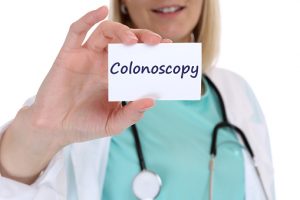 March is Colon Cancer Awareness Month, and despite being the second leading cause of cancer death for both males and females in the United States, it doesn’t get talked about enough. As of 2010, colorectal cancer affects nearly one million people and accounts for about 715,000 deaths worldwide—up from the reported 490,000 in 1990.
March is Colon Cancer Awareness Month, and despite being the second leading cause of cancer death for both males and females in the United States, it doesn’t get talked about enough. As of 2010, colorectal cancer affects nearly one million people and accounts for about 715,000 deaths worldwide—up from the reported 490,000 in 1990.
A possible reason why this type of cancer goes under the radar is that it requires a colonoscopy—the use of a tube-like instrument inserted into the rectum to assess colon health. It is by far the most accurate diagnostic tool as it allows physicians to see exactly what they’re working with. They can look for abnormal tissue and polyps (small growths) and can take a sample of the tissue on-the-spot if need be.
Advertisement
The problem with abnormal growths (polyps) in the colon or rectum is their potential for spreading to other parts of the body. While there are many different forms of colorectal cancer, the typically are due to old age and lifestyle, with a small number cases being due to genetic predisposition.
Risk factors for developing colorectal cancer
- Diet (high in red meat)
- Obesity
- Smoking
- Alcohol
- Lack of physical activity
- History of inflammatory bowel disease (Crohn’s disease or ulcerative colitis)
Common colorectal cancer symptoms
- Blood in stool
- Change in bowel movements
- Weight loss
- Chronic fatigue
In the United States, colonoscopies are recommended beginning at age 45 for African Americans and age 50 for other groups, with high-risk individuals (people with a significant family history of colorectal cancer) recommended to begin screening at age 40 or 10 years earlier than the age their relative was diagnosed. It is recommended that a colonoscopy is done every 10 years, with that number being modified for those at an increased risk. A detailed list of screening and surveillance tips for early detection are provided in the American Cancer Society guidelines.
“The single biggest modifiable risk factor for colorectal cancer is a failure to be screened,” says Dr. Ellen Gutkin from New York-Presbyterian Hospital Queens. She goes on to say, “Routine colonoscopy exams are life savers and may reduce your risk of succumbing to colorectal cancer by 90 percent.”
It may not be the most comfortable medical test, but simply knowing that it is the fastest and most accurate way to identify colon cancer is enough to get one done.
Related: Blood pressure and colon cancer risk may be lowered with vegetarian diet: Study
